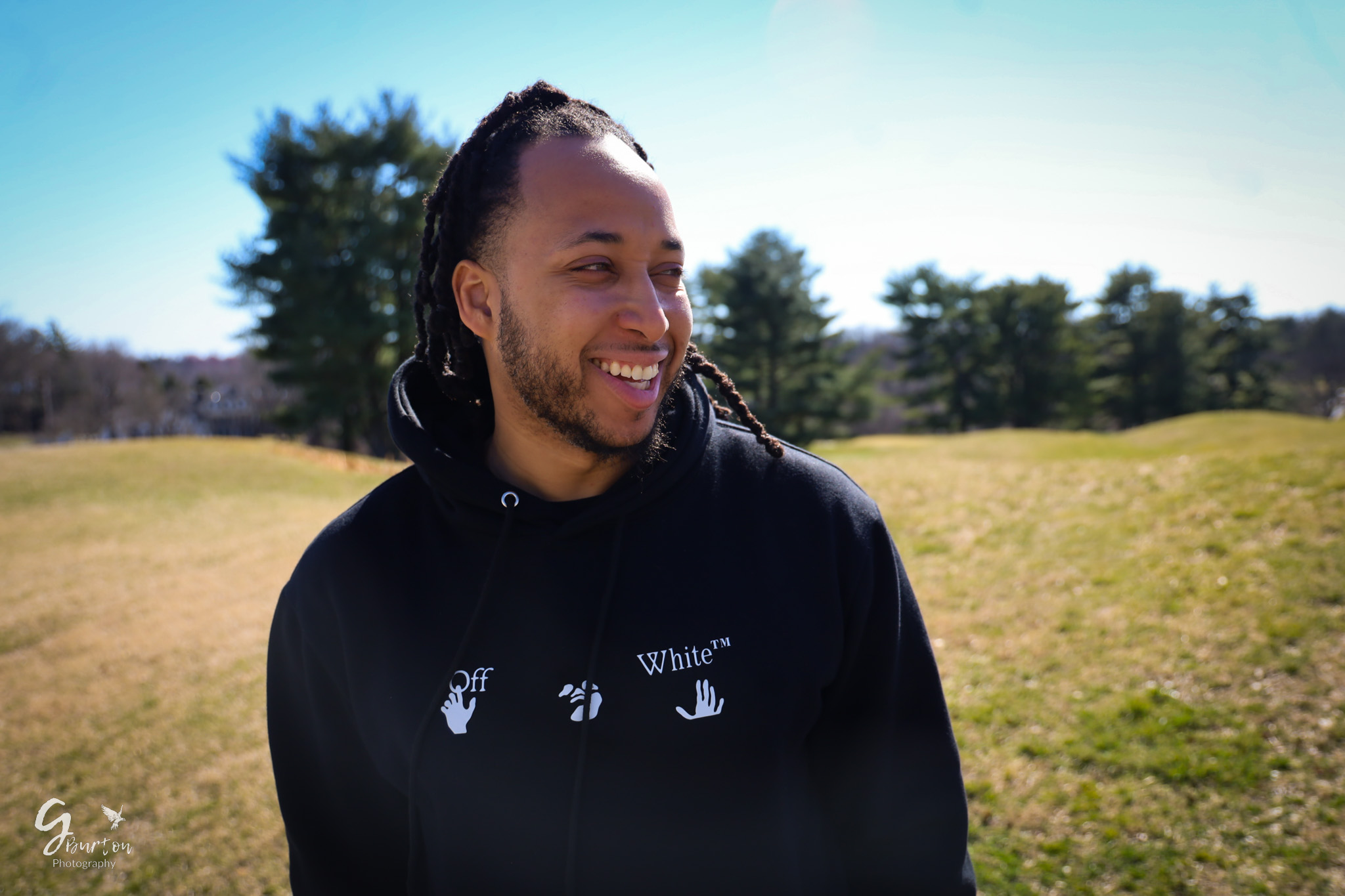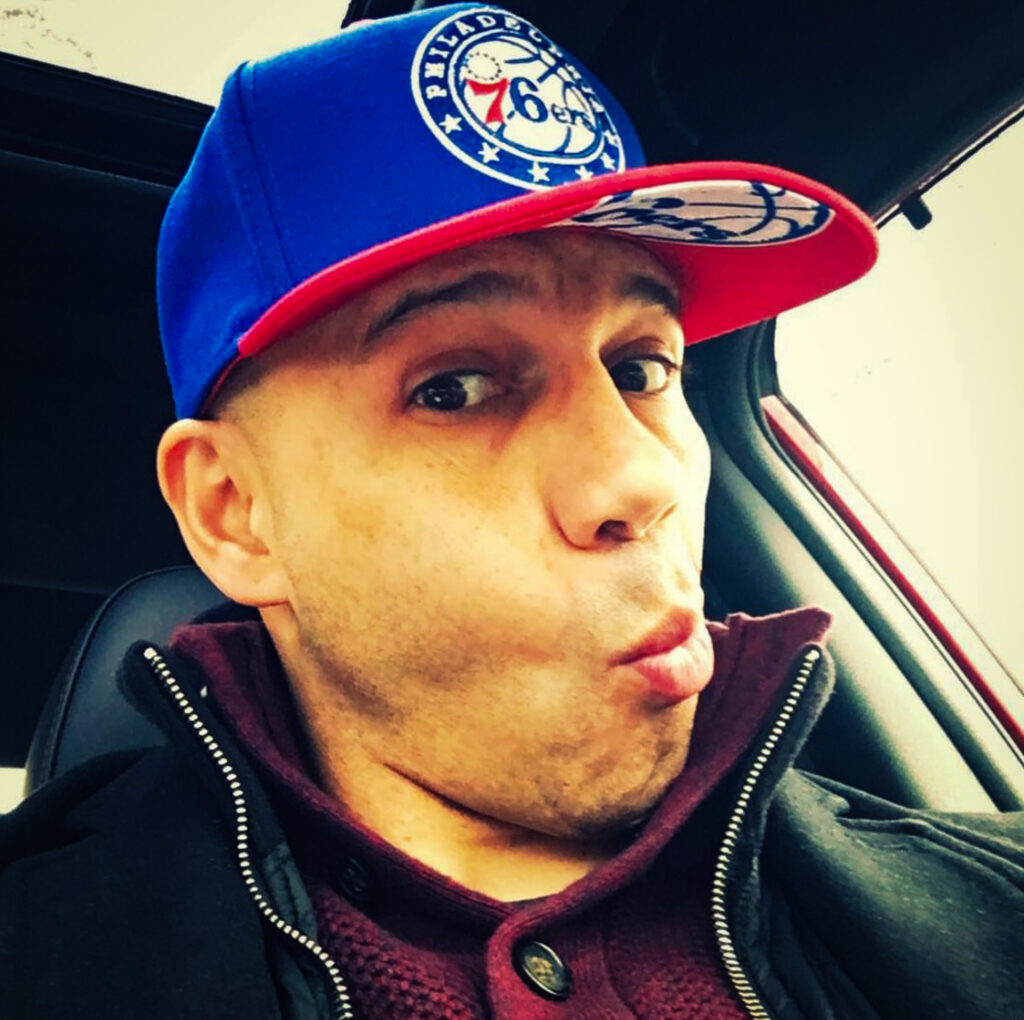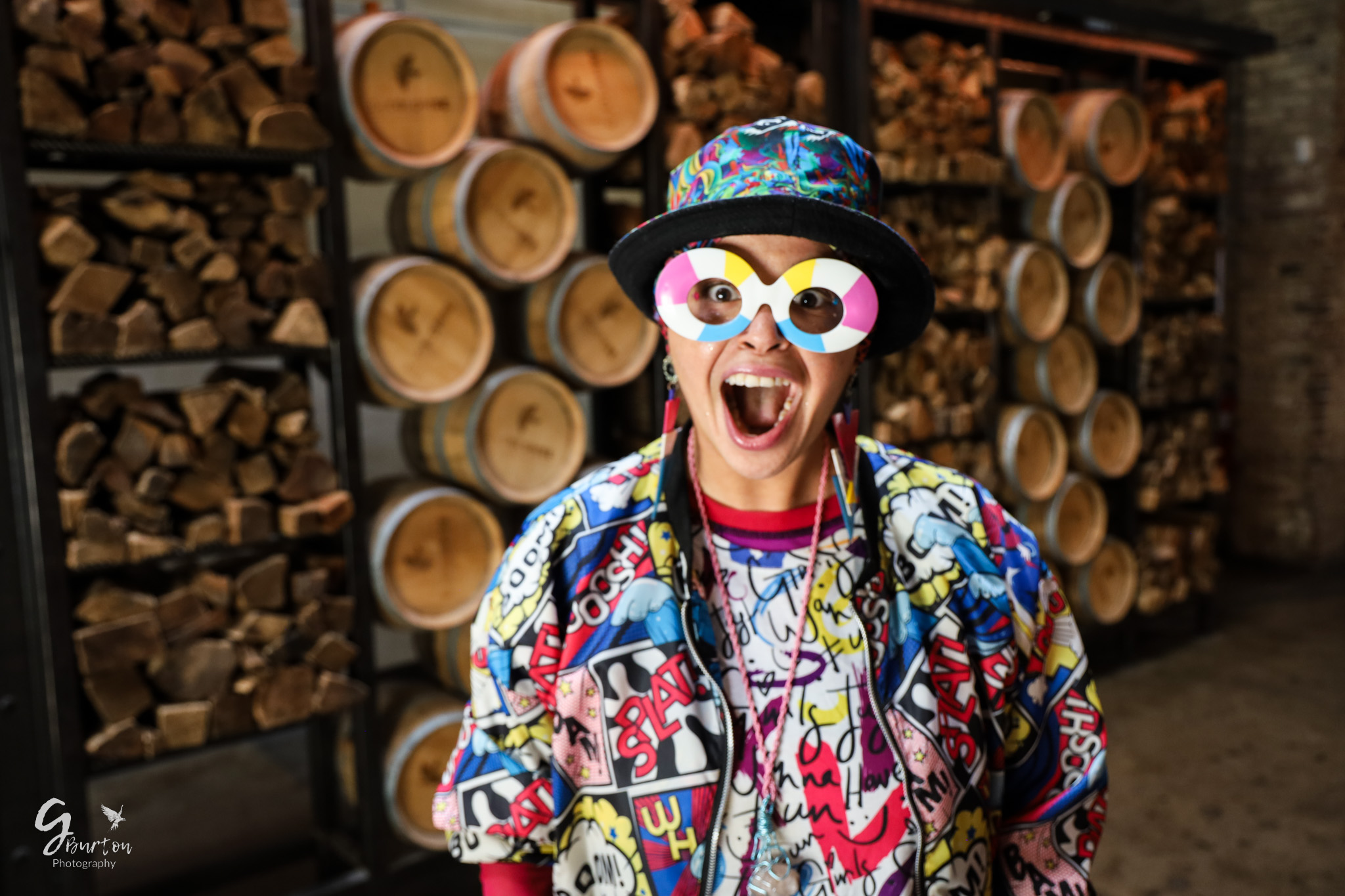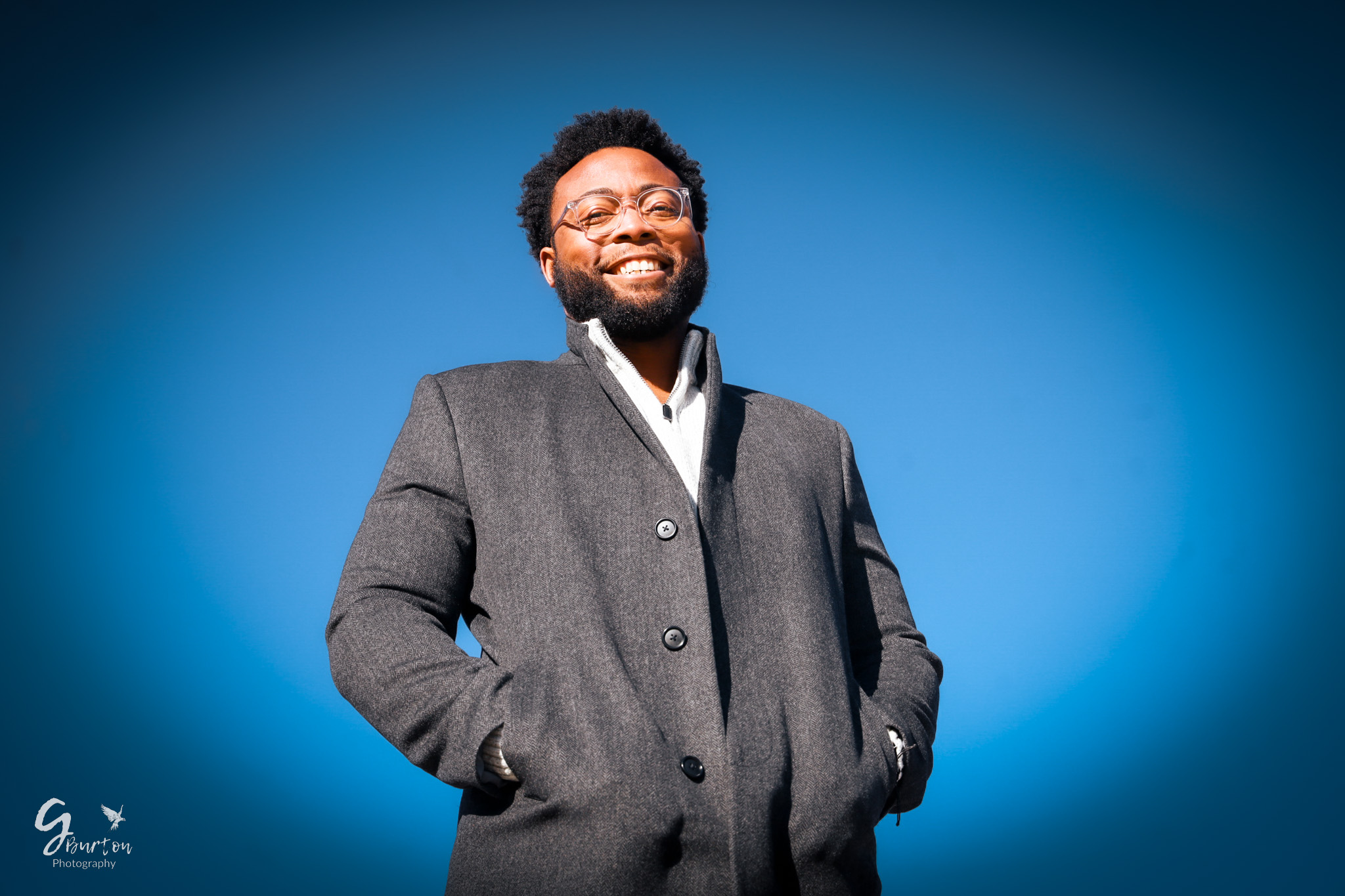West Philly native Rashaad Lambert isn’t your typical nationally celebrated entrepreneur. For one, he seems to be driven by helping others, especially those underrepresented in the community and in the world of business – that’s right, Black and Brown folks. He also knows that this demographic isn’t accustomed to receiving help without conditions.
“When people first meet me, they’re not used to someone else helping them without wanting anything in return,” explains Rashaad. “They often treat me like I’m a unicorn, like I don’t really exist. Someone actually called me that before [chuckles]. Maybe it’s how I was raised. I just believe that if you have the ability to do something for somebody, you should do it.”
“I see a bigger picture. If I help a community of over 10,000 people, I’m hoping they’ll go out and pay it forward by helping others. I want to create a ripple effect.” That philosophy spawned a true grassroots movement, founded by Rashaad, and named The Black Excellence Society.
There are some who may associate formal “societies” with an exclusionary or elitist tag. Rightly so, if we look at popular secret societies throughout history – Order of the Skull and Bones, Freemasons, Illuminati, etc.
But this one is different … much different.
At its core, The Black Excellence Society is a cultural movement. It is a supportive and nurturing network of diverse professionals. It is a place where talent and achievement are celebrated. And it is redefining how Black and Brown individuals across various industries and disciplines gain access to resources in order to thrive in today’s economic environment.
To fully appreciate the movement, Rashaad takes us back to its origin.
A Black President Changed My Life
In the early 2000’s, Rashaad was hustling a number of angles to earn a living, including launching entrepreneurial start-ups, running social media accounts for businesses, and promoting Philadelphia nightlife, concerts, and events.
Then, in 2008, something unexpected happened … something that would transform Rashaad’s life, indefinitely.
Barack Obama, a young and impressive senator from Illinois, was elected as the United States’ first African American President. It was a historical moment of monumental proportions, and transformational for many people of color, including Rashaad.
“On November 4, 2008, I decided I was going to retire from throwing parties … because we had a Black President. It didn’t seem real, and it profoundly changed me,” explains Rashaad. “I immediately thought to myself that there were bigger things for me to do. I didn’t know if I could be President, but I DID know that I could do more than just promote parties. And when you know better, you do better. So, the last party I threw was called My President is Black [laughs]. It was dope. And in 2008, I decided to become a full-time entrepreneur.”
The Impact of Black Mentorship
After a couple of years under his belt as an increasingly successful entrepreneur, Rashaad met public relations powerhouse, Desiree Peterkin-Bell. She had made a name for herself advising and working on successful campaigns for political heavyweights at the time. The list included the likes of President Barack Obama, New York City Mayor Michael Bloomberg, Newark Mayor Cory Booker, and Philadelphia Mayor Michael Nutter.
Peterkin-Bell was also African American, and soon became a mentor to Rashaad.
“Desiree was one of my most influential mentors, and one of my favorite people,” says Rashaad. “I kind of knew her work before I even really knew her. I was like … I want to be that. I want to be the person that nobody knows, but all the right people know. I intentionally met her at an event, explained my skill set and entrepreneurial aspirations. I really focused on cultivating a professional relationship with her. And it paid off.”

A Need for Change: Forb(es) the Culture
“In 2013, Desiree invited me to a meeting with Mayor Michael Nutter and the editor of Forbes Magazine. Forbes had a 30 Under 30 national award program, wanted to create a conference around it, and decided to launch it in Philadelphia, the ‘birthplace of America.’
“They were looking to attract a Black professional audience, so Desiree and the Mayor recommended me to help organize it, since I had built up a strong network in the Black community with my promotions business. I got the contract and was assigned to a management team for the first two conferences in 2014 and 2015.”
Despite an intention to highlight up and coming professionals, one recurring and troubling aspect of the conference was a negative experience expressed by Black attendees. Rashaad recalled that there were a lot of complaints surrounding the lack of diversity in conference programming.“ At the 2017 conference, Forbes hosted a panel on diversity, but it was led by white people,” says Rashaad shaking his head. “Folks were ready to boycott. I didn’t work for Forbes, but everyone started coming to me to potentially do something about it. So, I took a couple of hours to figure something out.”
“I found a restaurant that would allow dinner for a larger group and picked 25 people I thought would be good to help solve the problem. Well, over 300 people showed up. It was a great discussion, where Black and Brown people added incredible suggestions, and actually felt their voices were heard.”
At the end of the evening, I made a toast to the group. I said, ‘we’re doing this for the culture, Forbes the culture.’ Someone yelled out, ‘Forbes The Culture!’ Everybody raised their glass, and that was it … that’s how For(bes) the Culture started.”
The following day, Forbes the Culture was trending on social media and talk of the town. Many people were asking Rashaad what next steps would look like for the underground movement. He didn’t know. So, he started forming a more formal organization around the concept, defining what it was going to be about, and who it was going to represent.
“What we ended up creating was a networking organization for Black and Brown professionals all over the world,” explains Rashaad. “Our commonality was just too much to be ignored. We created a place where people of color could not only share complaints and problems, but also share resources and advice.”
“It’s sometimes a very lonely and siloed existence when you are a Black professional. You rarely get to talk to anybody that looks like you. Our goal was to create a larger Black economic powerbase.”
“At the next conference, we were about 800 members deep and everybody showed up wearing Forbes the Culture shirts and hoodies. People probably thought we were a gang,” laughs Rashaad. “Forbes found out about what we were doing and suggested that we work together with them. Forbes acknowledged they didn’t have experience or personnel to deal with the movement, so they hired me as Senior Vice President and Director of Culture & Community, a new position created just for me.”
“One of the first things I did when I got to Forbes, to test the waters, was campaign to stop using the word ‘minority’ when it relates to people. It was my first order of business and I fought vehemently for it. It eventually became a rule, and it went into the company style guide.”
“Soon, the Associated Press picked it up, then the New York Times. It became a new industry standard. That’s when I realized we were on to something that could make significant change.”

Goodbye For(bes) the Culture, Hello Black Excellence Society
Unfortunately, the partnership with Forbes slowly deteriorated over the next two years, with Rashaad leaving in February of 2023. The Forb(es) the Culture group remained intact, but resurfaced one month later under a new name – The Black Excellence Society – and with a renewed purpose.
Rashaad’s vision for the society is to create a supportive network that nurtures and amplifies the talents, achievements, and potential of Black individuals across various industries and disciplines. It serves as a platform where Black excellence is recognized, celebrated, and shared, breaking down barriers and inspiring future generations.
Members of the Society firmly believe that by embracing collaboration, mentorship, and knowledge-sharing, Black and Brown individuals can unlock their full potential and thrive in all areas of life. The society provides a space for networking, professional development, and mentorship opportunities, connecting accomplished Black professionals with emerging talent and aspiring leaders.
The organization recently released its 2050 Vision statement: to continuously and strategically make strides to close the racial wealth gap over the next 33 years.
To accomplish this, its program initiatives include funding for small businesses, providing scholarships and internships for students of color, and offering supplementary financial and educational tools for middle school, high school, and collegiate-level students. Rashaad is elated about the prospects. “We aim to continue driving culture as long as we are able to benefit from our contributions. We now have 10,000 members from all over the world, 25 chapters in the United States, and 3 international chapters. This is a movement, and honestly, it’s about community. It takes a village to lift people up.”
It Takes a Village
“It takes a village to raise a child” is an African proverb that reflects the emphasis African cultures place on family and community. Rashaad learned firsthand while growing up in West Philadelphia that it truly takes a village to raise a young person to be successful.
“For me, growing up in West Philly established a solid understanding of a real sense of community,” explains Rashaad. “I had my own family members, but I also had neighbors and friends that became family.”
Rashaad fondly tells the story of a neighborhood drug dealer that ironically had a positive influence on him as a young kid. “One of my Old Heads growing up was a guy I’ll call Mr. G, may he rest in peace. “
“Mr. G looked out for everyone on the block. It’s kind of like that phrase … putting honey on a cactus … because he was up to some questionable things on the street. But he didn’t do any of his dirt in our neighborhood. And he made sure that none of the young dudes in our neighborhood got into any of that either.”
“Mr. G helped us out with school stuff, and he taught us about business. I learned some of my earliest entrepreneurial lessons from him.” “He even instilled a secondary sense of community by encouraging us to support our own. At the time, we would shop at the corner store which was owned by an Asian family. He would ask us why we didn’t walk one extra block to support a Black-owned business that offered the same things. Stuff like that I had never thought about before, and it was reinforced by my mom.”

White House Presidential Lifetime Achievement Award
On June 19th, 2023, and in celebration of the Juneteenth holiday, Rashaad was announced as the recipient of The President’s Lifetime Achievement Award. The award, issued from the White House, recognizes his ‘exemplary volunteer service and invaluable contributions to improving other people’s lives.’
I ask Rashaad how he feels about such a distinction. “It’s strange to get a lifetime achievement award when you’re still just getting started. But it’s great to know they can see the work being done, even from the White House … a place that my ancestors weren’t allowed to enter unless it was in a capacity of servitude … and for this to be taking place on the day that marks 158 years since we were ‘freed’ from bondage. We’ve still got a lot of work to do.”

Awards
Of course, disrupting industries, achieving entrepreneurial success, and giving back to communities also brings national accolades along with it. Rashaad was an honoree of Al Dia and Black Enterprise 40 Under 40 selections in 2022, a nominee for Forbes 30 Under 30 in 2016, and received a Congressional Proclamation, U.S. Senate Resolution, and Entrepreneurial Excellence award from the Pennsylvania House Of Representatives.




